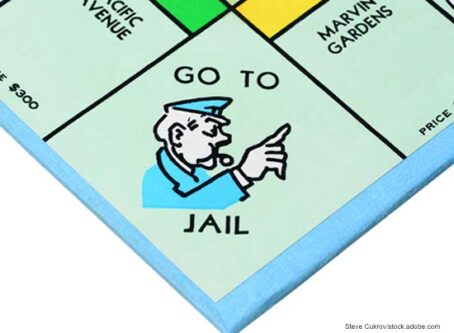Cycling through highway funds
Nothing fires up a bunch of drivers like hearing about “highway funds” being used for things other than roads. The name alone would indicate these funds are set aside specifically for “highways,” but we all know it’s a misnomer.
Infrastructure and highway funds are often lumped together in a big ol’ pile and used for everything from improving Wi-Fi in rural areas to building dog parks. While those things are really nice for the people who use them, let’s be realistic – truckers paying yearly HVUT taxes for “operating on public highways at registered gross weights equal to or exceeding 55,000 pounds” don’t take well to their $550 a year going towards building or maintaining anything other than, you guessed it, highways.
I’m just going to quit beating around the bush here. Highway funds shouldn’t be used for bike paths or anything else that doesn’t relate specifically to a highway.
I will argue this point to the ends of the earth, because words matter. You don’t look at a menu in a restaurant and say, “I’ll have the hamburger steak,” and fail to question being charged for the surf-n-turf. Because you didn’t order the surf-n-turf, you ordered hamburger steak. And you’re not going to eat hamburger steak for the price of surf-n-turf without a fight.
We’re being served hamburger steak roads and paying surf-n-turf prices for them. In the sage words of Pete from the movie “Oh Brother Where Art Thou,” – “That don’t make no sense.” Especially when bike paths generate zero tax dollars to build and maintain them.
Ask a bicycle enthusiast to pay $550 a year for the privilege of using those paths and see where it gets you.
North Carolina House Bill 157 seeks to alleviate some of this consternation between bicyclists and truck drivers by requiring anyone over the age of 16 to register their bike at the DMV. An annual registration fee of $10 is proposed for each bicycle. Anyone who doesn’t register their bike could be fined $25. License plates will be issued for those who register and pay to lawfully use the public thoroughfares. The fees from HB 157 would be used for upkeep and construction of bike lanes.
(You know, kind of like how the highway funds are supposed to be used for highways.)
According to The Pedestrian and Bicycle Information Center, the average cost for a 5-foot-wide bicycle lane is somewhere around $130,000 per mile. Obviously, they’re going to have to register a whole lot of bikes to even come close to covering the cost of anything.
Which brings us to one of the main reasons bicycle registration hasn’t been a raging success thus far. The burden of implementing and processing registration fees costs more than it generates in funds. In addition, most DMV offices are already struggling to keep up with motor vehicle registrations. Throwing a gabillion bicycle registrations on top of the hot mess they already have won’t make it any better. (Not to mention that bicycles are not motor vehicles, and words matter.)
It’s fairly evident bike lanes aren’t going to support themselves with registration fees of $10. It’s certainly a step in the right direction of attempting to have them pay for themselves and sounds pretty good on paper. But once again, like a large amount of proposed legislation, it wasn’t thought out well.
Imagine that.









